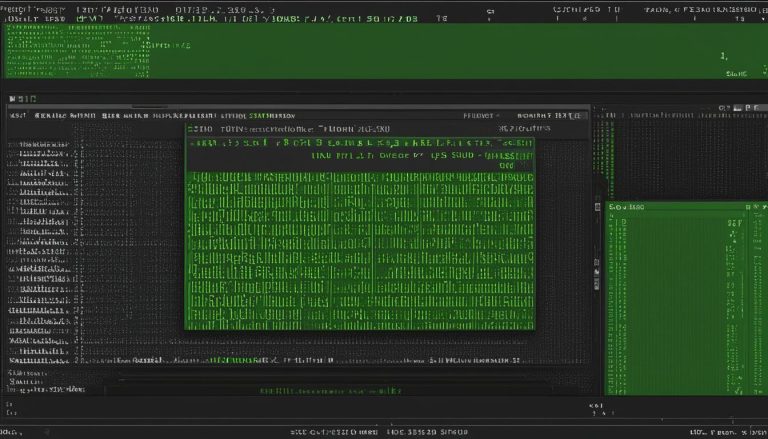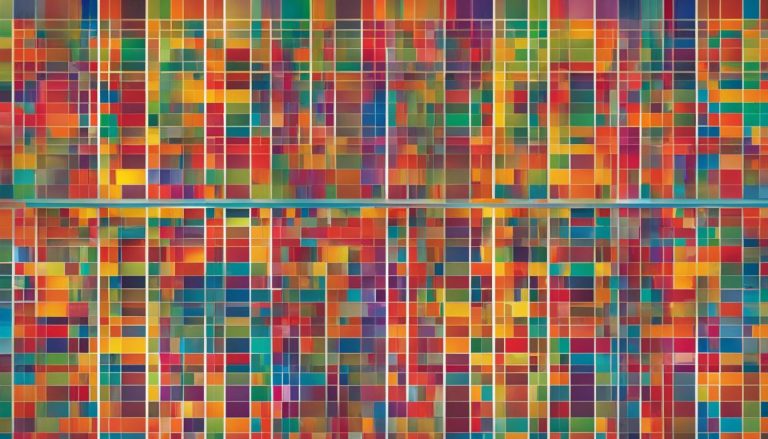Debian is a widely used Linux distribution known for its stability, flexibility, and large community support. It offers a free and open-source operating system that has gained popularity since its introduction in 1993. With a strong emphasis on open-source software, Debian provides a solid and reliable platform for both personal and professional use.
Debian’s package management system allows for easy installation, updating, and management of software packages. It is available in three main channels: testing, stable, and unstable. This ensures that users have access to a wide range of software and allows for seamless updates and upgrades.
In this comprehensive guide, I will delve into the history and origins of Debian, its key features as a Linux distribution, and its package management system. Whether you are a seasoned Linux enthusiast or new to open-source operating systems, this guide will provide you with valuable insights into the world of Debian.
Key Takeaways:
- Debian is a free and open-source Linux distri
The History and Origins of Debian
Debian, a free and open-source operating system, has a rich history that traces back to its inception in 1993. The project was initiated by a group of passionate computer enthusiasts and developers led by Ian Murdock. Their goal was to create an operating system that was not only freely available but also highly customizable and focused on stability and security.
Debian quickly gained recognition within the Linux community for its reliability, flexibility, and commitment to open-source principles. It served as the foundation for numerous other Linux distributions, including the popular Ubuntu. Throughout its journey, Debian has remained true to its core values, attracting a large and dedicated community of users and contributors.
As an open-source operating system, Debian has had a significant impact on the development of the Linux ecosystem. It has played a critical role in advancing the ideals of collaboration, transparency, and accessibility in the world of software. Today, Debian stands as a testament to the power of community-driven projects and continues to shape the future of open-source technology.
Debian’s Founding Principles
“The Debian project, with its emphasis on freedom and community, has always been guided by a set of founding principles. These principles include commitment to the GNU/Linux platform, dedication to open-source software, and a focus on the needs of users over corporate interests. These principles have been the driving force behind Debian’s success and longevity.”
The Legacy of Debian
Debian’s impact on the Linux world extends far beyond its own distribution. It has influenced the development of other popular Linux distributions and has contributed to the overall growth and popularity of open-source software. The dedication and passion of its community members have made Debian a reliable and trusted platform for countless users around the globe.
The Evolution of Debian
Since its inception, Debian has evolved and adapted to the changing landscape of technology. It has embraced new advancements while staying true to its core principles. Today, Debian continues to thrive as a versatile and stable operating system, providing users with a powerful platform for their computing needs.
| Year | Milestone |
|---|---|
| 1993 | Debian project founded by Ian Murdock |
| 1996 | Release of Debian 1.1 (Buzz) |
| 2000 | Introduction of Debian GNU/Linux |
| 2005 | Release of Debian 4.0 (Etch) |
| 2017 | Release of Debian 9 (Stretch) |
Understanding Debian as a Linux Distribution
Debian is not just an operating system; it is also a Linux distribution with a multitude of benefits and unique characteristics. One of the standout advantages of Debian is its stability. Whether you are using it for personal or professional purposes, Debian provides a solid and reliable platform that you can count on. This stability is a result of the Debian team’s dedication to testing and quality assurance, which ensures that the software performs well and is free from major issues.
Flexibility is another key feature of Debian as a Linux distribution. It offers a wide range of software packages that can be easily customized to meet your specific needs. The flexibility extends to the different architectures that Debian supports, making it accessible across various hardware platforms. With Debian, you have the freedom to tailor your system to suit your preferences and requirements.
Debian’s active and vibrant community support system sets it apart from other Linux distributions. The Debian community is vast, with numerous contributors and users who are passionate about the project. This community provides valuable assistance, support, and collaboration opportunities, ensuring that users always have access to help when needed. The strong community support is a testament to the open and inclusive nature of Debian.
Debian as a Linux Distribution: Benefits Summary
- Stability: Debian offers a reliable and robust platform for both personal and professional use.
- Flexibility: With a wide range of software packages and support for multiple architectures, Debian allows users to customize their systems to their liking.
- Active Community: Debian’s large and engaged community provides support, collaboration, and assistance to users.
| Feature | Description |
|---|---|
| Stability | Debian provides a solid and reliable platform for both personal and professional use. |
| Flexibility | Debian offers a wide range of software packages and supports multiple architectures, allowing for customization. |
| Community Support | With its active and supportive community, Debian ensures users have access to assistance, collaboration, and support. |
Key Features of Debian as a Linux Distribution
Debian offers several key features that make it a standout Linux distribution. Its stability, flexibility, and community support set it apart from other operating systems.
Stability
Debian is known for its exceptional stability, making it an ideal choice for both personal and enterprise use. The Debian team places great emphasis on testing and quality assurance to ensure that the software performs reliably and efficiently. This stability provides a solid foundation for running critical applications and services.
Flexibility
Debian offers a high degree of flexibility, allowing users to tailor their systems to their specific needs. With its wide range of software packages, Debian provides users with extensive choices for customization. Whether you’re a developer, system administrator, or casual user, Debian gives you the flexibility to create a personalized computing environment.
Community Support
The Debian community is vibrant and active, providing excellent support for users. With a large and diverse community of contributors, users can seek assistance, collaborate on projects, and share knowledge. Whether you have a question, need help resolving an issue, or want to contribute to the development of Debian, the community is there to support you.
Debian’s stability, flexibility, and community support make it a top choice among Linux distributions. Whether you’re a seasoned Linux user or new to the open-source world, Debian provides a reliable and customizable platform for all your computing needs.
Debian’s Package Management System
Debian’s package management system is a key feature that sets it apart from other Linux distributions. It offers users an efficient and user-friendly way to install, update, and manage software packages on their systems. The package management system eliminates the hassle of manually downloading and installing software, making it incredibly convenient for both novice and advanced users.
One of the standout benefits of Debian’s package management system is its easy installation process. With just a few simple commands, users can install software packages directly from the Debian repositories. This eliminates the need to search for software on external websites or worry about compatibility issues. Debian’s package management system ensures that all necessary dependencies are automatically resolved, providing a seamless installation experience.
Another advantage of Debian’s package management system is the ability to easily update and upgrade software. The system keeps track of installed packages and their respective versions, making it simple to check for updates. Users can easily upgrade their software to the latest versions, ensuring they have access to the most up-to-date features and bug fixes.
Overall, Debian’s package management system is a powerful tool that simplifies the software management process. Its easy installation, seamless updates, and reliable package management make it a popular choice among Linux users. Whether you’re a beginner or an experienced user, Debian’s package management system provides a streamlined and efficient way to manage your software.
The Benefits of Debian’s Package Management System:
- Efficient and easy installation process
- Automatic resolution of dependencies
- Seamless updates and upgrades
- Simplified software management
Conclusion
Debian is a powerful and widely recognized Linux distribution that offers numerous benefits for users. With its stability, flexibility, and extensive community support, Debian has become a popular choice for both personal and professional use.
One of the key features of Debian is its stability. The Debian team ensures that the software is thoroughly tested and reliable, making it an excellent choice for critical systems and servers.
Debian also provides flexibility, allowing users to customize their software packages and choose from a wide range of options. Whether you’re a developer, system administrator, or casual user, Debian offers the flexibility to meet your specific needs.
Another significant advantage of Debian is its active and supportive community. With a large user base, you can find assistance, collaborate with others, and stay up to date with the latest developments in the Debian ecosystem.
Overall, Debian’s features and benefits make it a reliable and customizable Linux distribution. Whether you’re looking for a stable operating system or a platform for advanced software development, Debian has you covered.
FAQ
What is Debian?
Debian is a free and open-source Linux distribution known for its stability, flexibility, and large community support.
When was Debian first introduced?
Debian was first introduced in 1993 by a group of computer enthusiasts and developers led by Ian Murdock.
What are the benefits of using Debian as a Linux distribution?
Debian offers stability, flexibility, and a large and active community support system.
What is Debian’s package management system?
Debian’s package management system allows users to easily install, update, and manage software packages on their systems.
Hi, I’m Mark, the author of Clever IT Solutions: Mastering Technology for Success. I am passionate about empowering individuals to navigate the ever-changing world of information technology. With years of experience in the industry, I have honed my skills and knowledge to share with you. At Clever IT Solutions, we are dedicated to teaching you how to tackle any IT challenge, helping you stay ahead in today’s digital world. From troubleshooting common issues to mastering complex technologies, I am here to guide you every step of the way. Join me on this journey as we unlock the secrets to IT success.


